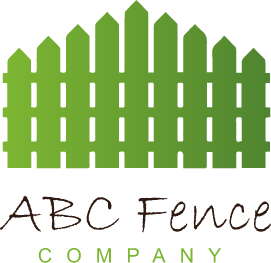Building a fence is one of the best ways to enhance the security of your property. But the purpose of a fence is not only limited to security, they can add exquisite charm to your property and also enhance privacy. However, amid all the planning and design considerations, one critical question often arises: Do you need a permit to build your fence?
This question becomes even more pertinent if you are planning to build a fence around your property. Everyone has the right to protect his property, but of course, rules do exist and they must be followed. Obtaining a permit may or may not be important depending upon your local regulations. This is the very question that we are going to answer in this blog post.
Factors Determining Permit Needs
You may or may not require obtaining a permit before constructing a fence and this entirely depends upon the location of your project. However, there are several factors that come into play when determining the need for a permit. These factors include
1. Local Regulations
Local regulations play a significant role in the fence permitting process. Every local municipality has its own rules and regulations regarding fence permitting and when it becomes mandatory. For instance, if you live in a heavily populated area there’s a high chance that you’ll have to obtain a permit. These rules can vary significantly depend upon the area. Therefore, inquiring about your local authority regarding fence permits can give you an in-depth knowledge of all the factors involved.
2. Fence Height
Fence height is a major factor that can trigger the need for a permit. Generally, fences up to a maximum height of 4ft to 6ft do not require a permit. However, this height range can vary depending on your location. Taller fences are subjected to more scrutiny to ensure that they do not obstruct the vision or violate any of the local community standards.
- Fence Material
Fences made up of hazardous materials like barbed wire or electrical fences are not allowed to be used in residential areas. Even if their height is within limits. Whereas, wooden or chain link fences mostly do not require a permit. This is because the material used for fences has a great impact on the overall community and the structural integrity of the fences.
4. Property Line Placement
Finally, the placement of your fence in relation to your property lines is a crucial consideration. Fences built directly on or near property lines may have different regulations compared to those built well within your property boundaries. Building too close to the property line can lead to disputes with neighbors and might require specific permits to ensure that the placement complies with local zoning laws.
Benefits of obtaining a Permit (Even if Not required)
Even if is not mandated by your local regulation, obtaining a permit before installing a fence may provide you numerous compelling benefits some of which include.
1. Peace of Mind
Obtaining a permit legalizes your fence installation. This gives you peace of mind, guaranteeing that there are no legal issues with the installed fence. A permit ensures that the fence is safe, legal, and built to last. So, you don’t have to worry about any complexities of removal orders in the future.
2. Future Considerations
Investing in building a fence around your house is a great option if you are planning to sell it in the future. A well-built fence not only improves your building’s security but also enhances its overall exterior look. This creates a good first impression on the visitor even before he enters your property, leading to a quick sale. Having the proper permits in place can streamline the selling process and avoid any potential legal issues.
3. Avoiding Violations and Fines
Obtaining the required permits before the commencement of the project is a great way to shield yourself from all fines and penalties. Building a non-compliant fence can lead to problems later. You might be forced to tear it down, rebuild it, or face fines. A permit avoids these hassles and delays.
Finding Out About Permit Requirements
The best way to inquire about the permit requirements of your local municipality include
1. Contact the Local Building Department
The very first thing to do is to contact your local building department. They have all the information regarding the permit requirements required during a fence installation project. Usually, the official website of your municipality has the contact details for the building department. If necessary, a representative can walk you through the permit application process and address any specific questions you may have when you speak with them personally.
2. Utilizing Online Sources Offered by the Local Government
Nowadays, most of the information is available on the Internet. Many local governments have their own websites which contain all information about the local regulations and the permitting process. These resources often include detailed guidelines, application forms, and even instructional videos. Searching your municipality’s website for information on fence permits can be a quick and efficient way to gather the information you need.
Conclusion
Building a fence might seem straightforward, but understanding permit needs is crucial. Local regulations, fence height, materials, and property line placement all influence whether a permit is required. Even if not mandatory, obtaining a permit offers peace of mind. It ensures your fence complies with safety codes and avoids future issues like removal orders or fines. Additionally, permitted fences can enhance your property value and prevent neighborly disputes through required notifications.
To guarantee a smooth fence project, always check with your local building department first. Their website likely has permit information, or you can directly contact them for clarification. Don’t hesitate to utilize available online resources as well. These proactive steps can save you time, money, and stress in the long run, allowing you to enjoy your new fence without any unexpected complications.
